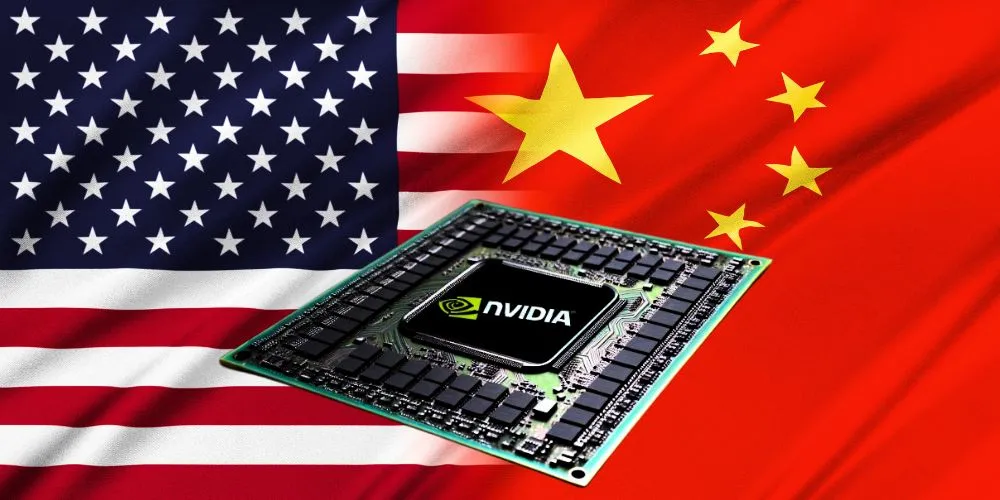Key Points
- Nvidia is launching a lower-spec AI chip for China, priced at $6,500–$8,000. The chip avoids export restrictions by using GDDR7 memory and limited bandwidth.
- Mass production could start in June, with another chip coming in September. Due to export bans, Nvidia’s China market share has dropped from 95% to 50%.
- The U.S. ban on the H20 chip led to a $5.5B write-off and $15B in lost sales.
- Nvidia now competes directly with Huawei, which is gaining market share in China for AI chips.
Nvidia is preparing to launch a new artificial intelligence (AI) chip specifically designed for the Chinese market. It aims to regain lost ground after U.S. export restrictions severely limited its ability to sell high-performance processors in the region. Based on Nvidia’s latest Blackwell architecture, the new chip is expected to be priced between $6,500 and $8,000—significantly lower than the $10,000 to $12,000 price tag of the now-restricted H20 model.
This new GPU, likely named the RTX Pro 6000D or B40, will use GDDR7 memory rather than high-bandwidth memory and will not include advanced packaging technology like Taiwan Semiconductor Manufacturing Co.’s CoWoS. While less powerful than the H20, the chip is designed to remain within the memory bandwidth limits imposed by recent U.S. export controls. The chip is expected to achieve around 1.7 terabytes per second of memory bandwidth—just under the 1.8 TB/s limit set by regulators.
According to sources, mass production of the new chip could begin as early as June, and another China-specific Blackwell chip could possibly enter production by September.
Nvidia has been forced to pivot its China strategy multiple times. Previously, the H20 chip—based on the older Hopper architecture—was modified for export but eventually banned. These restrictions led to a $5.5 billion inventory write-off and caused Nvidia to abandon an estimated $15 billion in sales opportunities.
China accounted for 13% of Nvidia’s total revenue last year, but its market share in the country has declined from 95% in 2022 to about 50% today. With its Ascend 910B chip, domestic competitors like Huawei are gaining traction, especially as Nvidia’s access to the Chinese market remains uncertain.
Nvidia CEO Jensen Huang has warned that ongoing export limits could accelerate Huawei’s dominance in China’s AI chip sector.




